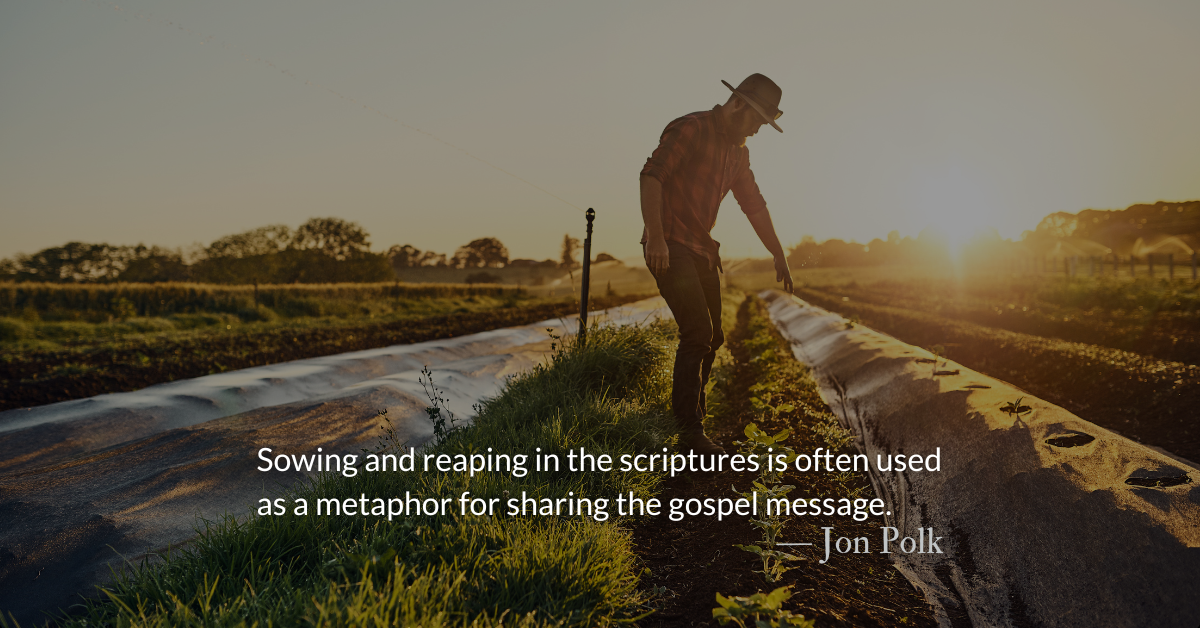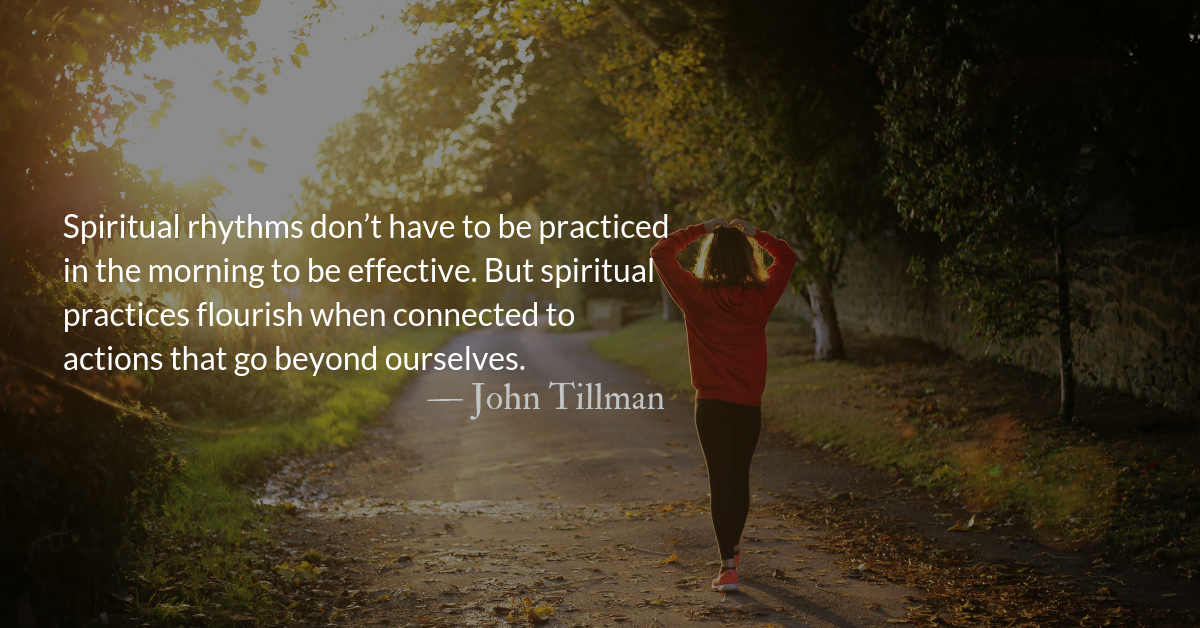Scripture Focus: Psalm 90:14-17
14 Satisfy us in the morning with your unfailing love,
that we may sing for joy and be glad all our days.
15 Make us glad for as many days as you have afflicted us,
for as many years as we have seen trouble.
16 May your deeds be shown to your servants,
your splendor to their children.
17 May the favor of the Lord our God rest on us;
establish the work of our hands for us—
yes, establish the work of our hands.
Reflection: Bringing in the Sheaves – Hymns for Giving Thanks
By Jon Polk
What are sheaves and why do we need to bring them in?
For those unfamiliar with an agrarian way of life, a sheaf is a bundle of wheat stalks that has been tied together after being harvested.
Following the harvesting and bundling of the wheat, the sheaves are brought into a room for threshing, the process of removing the grain from the wheat and separating out the edible portions from the chaff, the useless stalks.
A good harvest and bountiful crop would be cause for rejoicing.
Bringing in the sheaves, bringing in the sheaves,
We shall come rejoicing, bringing in the sheaves.
Knowles Shaw, born in Ohio in 1834, but raised in Indiana, was a minister in the Christian Church and because of his beautiful voice he was known as the “singing evangelist.” He wrote and composed music and published five song books of his own hymns.
Knowles was a prolific preacher and evangelist, and it is estimated that he baptized over ten thousand people in his lifetime.
Shaw’s most famous composition, Bringing in the Sheaves, was also one of his last and was inspired by Psalm 126:6, “Those who go out weeping, carrying seed to sow, will return with songs of joy, carrying sheaves with them.”
Sowing in the morning, sowing seeds of kindness,
Sowing in the noontide and the dewy eve;
Waiting for the harvest, and the time of reaping,
We shall come rejoicing, bringing in the sheaves.
The hymn gives voice to our gratitude for God’s provision, sustenance, and watch care over our lives. In both times of joy and times of sadness, we have a God who blesses our labor and brings the harvest.
Sowing in the sunshine, sowing in the shadows,
Fearing neither clouds nor winter’s chilling breeze;
By and by the harvest, and the labor ended,
We shall come rejoicing, bringing in the sheaves.
The singing evangelist Knowles Shaw would have us remember, however, that sowing and reaping in the scriptures is often used as a metaphor for sharing the gospel message.
When we come together as family and friends to celebrate and give thanks, we can easily get lost in the bounty of the provision and forget about the God who provided. Instead, may our thanksgiving be a testament to those around us of the faith we have in God’s providential care. May the sheaves we gather represent the impact our own generosity has on those around us.
Divine Hours Prayer: The Request for Presence
Let all who seek you rejoice and be glad in you; let those who love your salvation say forever, “Great is the Lord!” — Psalm 70.4
– From The Divine Hours: Prayers for Summertime by Phyllis Tickle.
Today’s Readings
1 Chronicles 16 (Listen 5:21)
Psalms 90 (Listen 2:03)
Read more about A Prayer of Harvesters
“The harvest is plentiful, but the workers are few…”
There is much work to be done, Lord.
Send us to the field—into our cities.
Read more about Supporting Our Work
Support from donors like you is vital to continuing our work. Join our donors to support ad-free biblical devotionals shared around the world.








